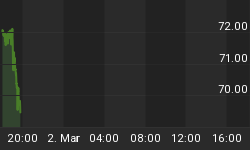After 88 years--almost a century after Stalin established retirement ages in the then-Soviet Union—Russian President Vladimir Putin has decided to change legislation that will raise the retirement age.
According to the new law, the retirement age for men will be raised from 60 to 65, and for women from 55 to 63. Retirement ages for some professions, including soldiers and police officers, will remain unchanged.
“Life has changed,” the employment minister Maxim Topilin told parliamentarians. “We can’t remain in the 1930s.”
But taking Russia out of the 1930s isn’t an easy move for the public to swallow, and there is plenty of speculation that this move alone could cost Putin a lot of popularity.
‘Progress’ isn’t enough to appease the public, and one of the average Russian citizen’s biggest concerns is the relation between retirement and life expectancy.
Indeed, in many Russian regions, the proposed pension ages fall below average life expectancy.
Take the Chukotka region, for example, in the far east. Here, male life expectancy is 60.33—almost five years before retirement.
And as it is, life expectancy aside, current state pensions average only 13,342 rubles (about $213) a month—not enough to meet the basic costs of living. Related: Why The Crypto Market Has Lagged In 2018
The public also didn’t appreciate the fact that Moscow took advantage of the opening day of the 2018 World Cup to make the announcement, hoping it would be buried in all the football excitement.
“It is a bastardly way to introduce reform. The people have a deal with the Kremlin in return for not protesting--and the most important part of that deal is that they are given the chance to survive,” former Kremlin adviser Gleb Pavlovsky said in an interview on Echo of Moscow radio station.
Nationwide, this is sparking outrage and protest, with polls showing that eight out of 10 Russians oppose the government’s plans. In fact, according to the Russian Public Opinion Research Center, in just two weeks, Putin's approval ratings fell from 77 percent to 63 percent.
And that’s a state-run polling agency. Others say the approval ratings are likely much lower. According to The Independent, "... trust in Mr Putin has fallen to the lowest recorded ebb since 2011 – below 38 percent […]This is the first time this has happened since the annexation of Crimea in 2014."
This may end up being Putin’s greatest challenged in his decade-and-a-half of power.
Most Russians—including his own supporters—will recall his statement 13 years ago when he said in a televised comment, “I am opposed to raising the retirement age. And as long as I am president, no such decision will be taken.”
With approval ratings dropping and a public that may no longer be incentivized to keep quiet and stay off the streets, Putin could end up paying quite a high price for reversing his pledge on pensions. And if it doesn’t come along with a sudden uptick in life expectancy, many Russians may end up retiring from the grave.
By Damir Kaletovic for Safehaven.com
More Top Reads From Safehaven.com
















